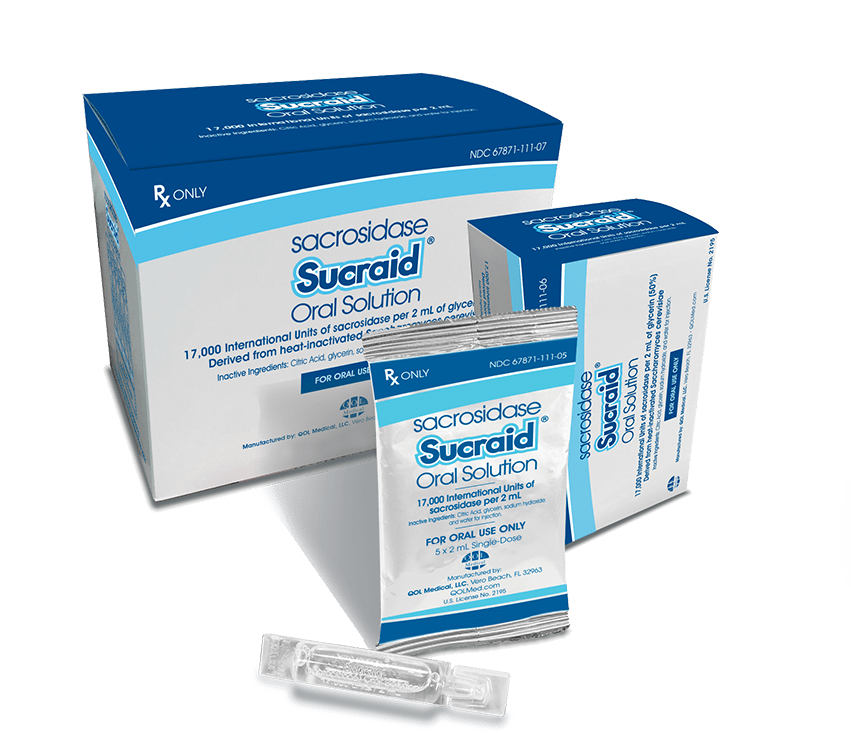Dosing
Dosage and Administration
Please follow the dosing instructions carefully.
In This Section
The recommended Sucraid® dose is based on one’s body weight
The proper Sucraid® dose depends on the patient’s body weight.
- For individuals who weigh up to 33 lb (15 kg), the Sucraid® dose is 1 mL
- For individuals who weigh more than 33 lb (15 kg), the Sucraid® dose is 2 mL
Sucraid® is available two ways, in bottles that contain 118 mL (4 fluid oz) and single-use containers that each hold a 2-mL dose.
Recommended dosing for Sucraid® bottles:
- 1 mL (8,500 IU, one full measuring scoop) per meal or snack for patients up to 33 lb (15 kg) in body weight
Each Sucraid® dose should be diluted in 2 to 4 ounces of water, milk or infant formula. Sucraid® can be measured with the 1 mL-measuring scoop (provided).

Administration, Storage, and Shelf Life
The following should be noted with regard to the administration:
- Half of each dose should be taken before the meal and the other half during the meal
- The beverage or infant formula used to dilute Sucraid® should not be heated, nor should Sucraid® be added to hot beverages, as heat can decrease the potency of the enzyme
- Sucraid® should not be reconstituted or consumed with fruit juices, as the acidity may impair enzyme activity
Storage and shelf life of Sucraid®:
- Sucraid® should be refrigerated at 36°F to 46°F (2°C to 8°C) and protected from heat and light
- Bottles of Sucraid® should be discarded four weeks after first opening due to the potential for bacterial growth
- Single-use containers of Sucraid® can be removed from refrigeration and stored at 15°C to 25°C (59°F to 77°F) for up to 3 days (72 hours)
Healthcare professionals may recommend that patients avoid dietary sources of starch for the first two weeks of Sucraid® treatment, then gradually add starch back into the diet while monitoring symptoms, as Sucraid® does not address isomaltase deficiency.


